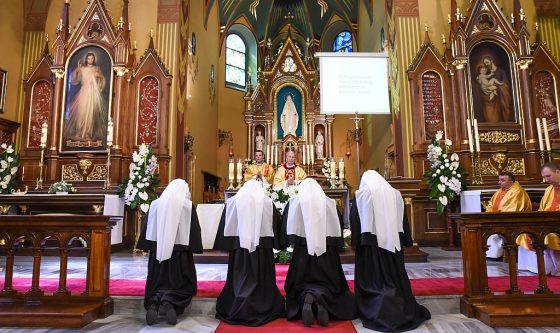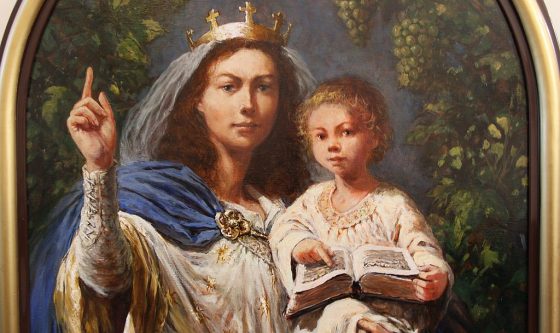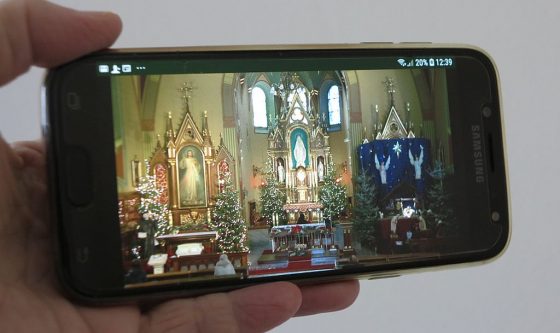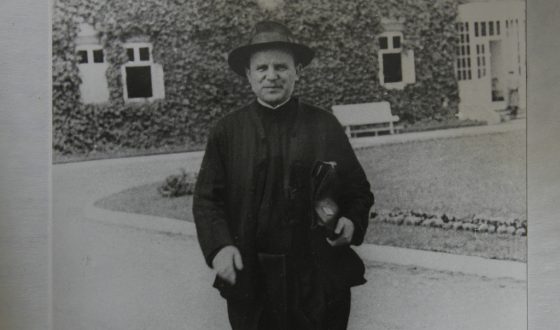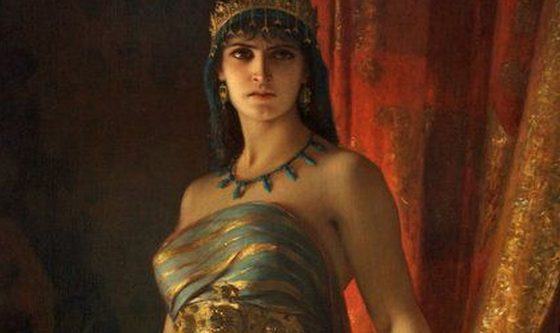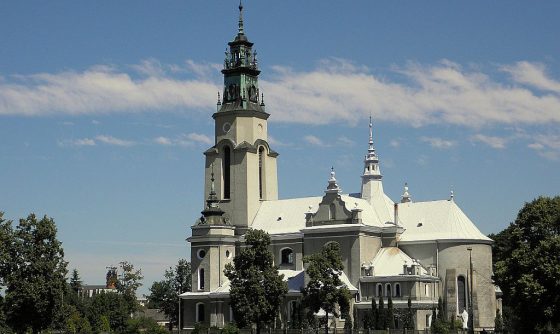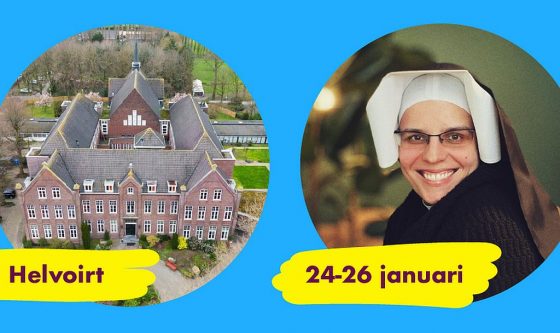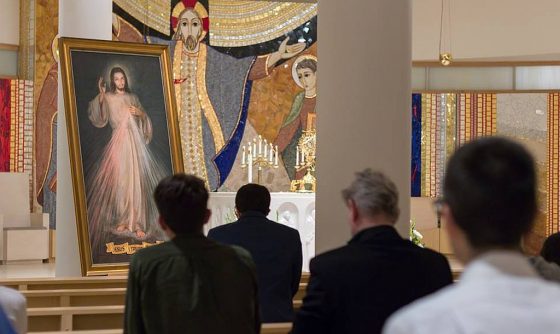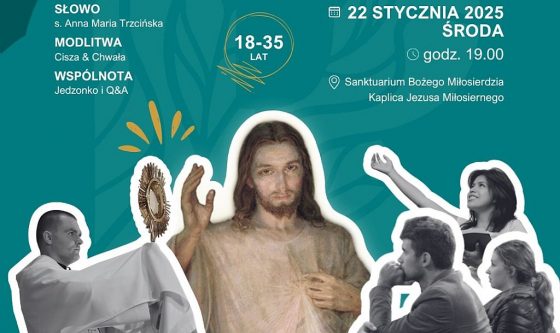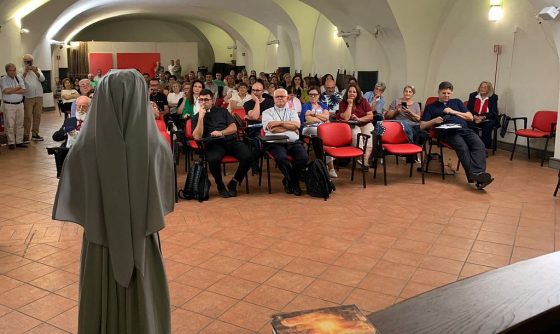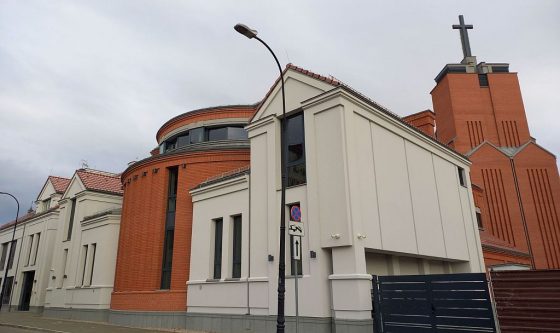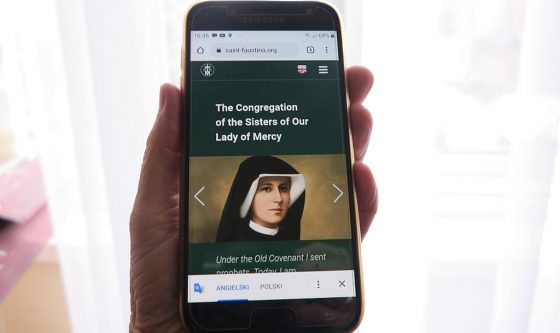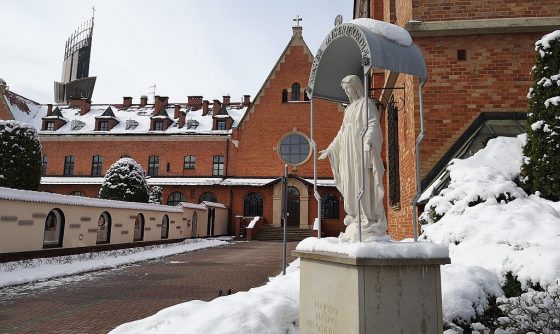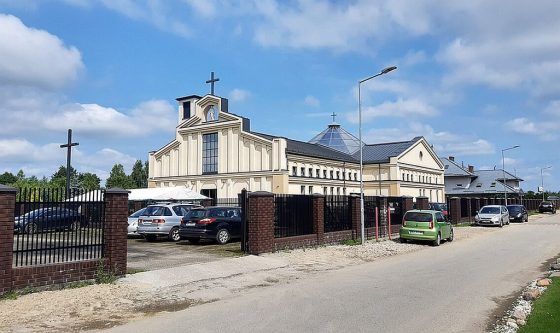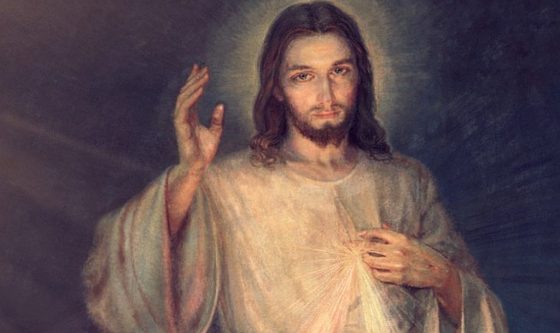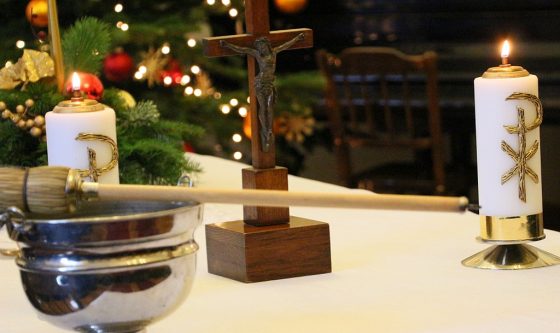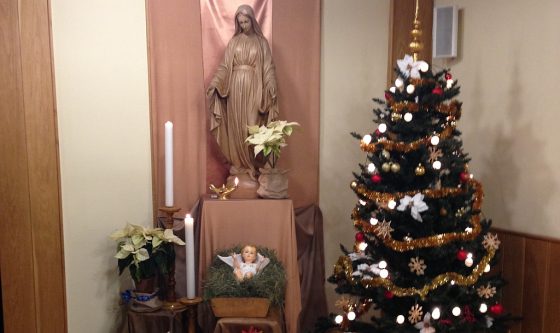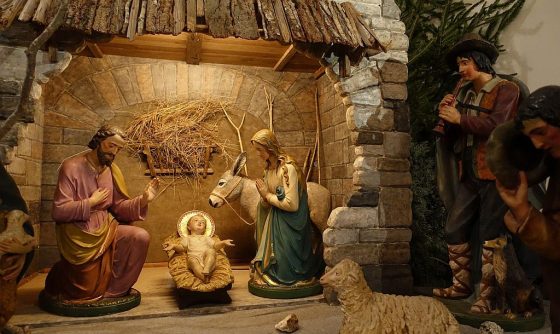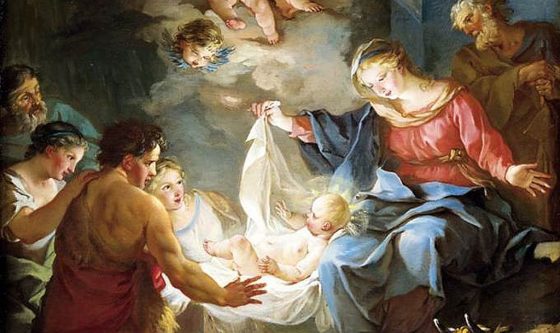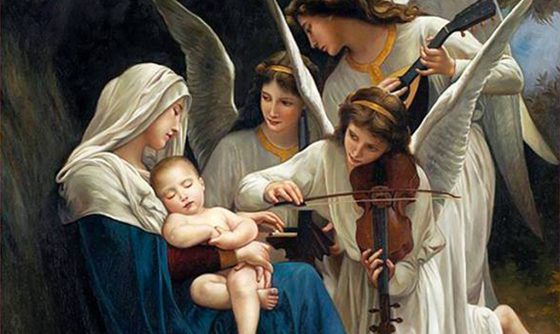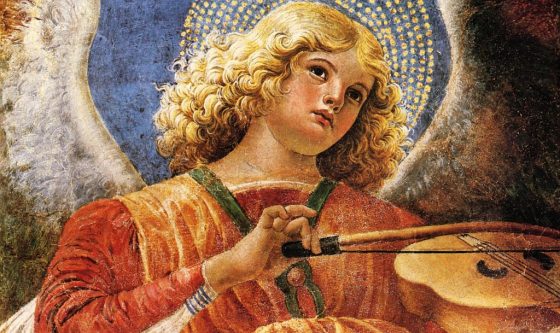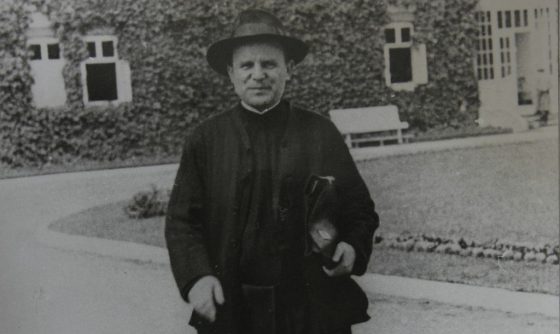Every day tens of thousands of people leave this earth due to illness, old age, wars, disasters, violence or other reasons. Hunger alone kills 11 people every minute, and every 40 seconds someone in the world commits suicide. Jesus asks through St. Faustina that we pray for the dying with the words of the Chaplet of Divine Mercy.
Therefore, the Congregation of the Sisters of Our Lady of Mercy at the Shrine of Divine Mercy in Krakow-Łagiewniki runs the Chaplet for the Dying. In 2024, people from Poland and many other countries around the world who declared their willingness to help the dying on a selected day and time zone more than 48,600 people supported with prayers whose names were sent by text message to the following phone number: +48 505 060 205 or by e-mail.
Anyone can join in this work of mercy and rush to the aid of those most in need of support, as they make their last and most important decision, which concerns eternity, at a time when they are most vulnerable and under attack from Satan. When filling out the entry form, choose the day of the week and the time of your vigil, as well as how information about the dying will be notified by text message (only in Poland) or e-mail.
Other participants in this project are donors who support this work financially, doctors, nurses, volunteers in hospitals and hospices, and all those who send text messages with the names of the dying, by which they show that they care for their salvation.
From February 7 to 9 this year, a retreat for girls and women will take place at the Discalced Carmelite Monastery in Lorinčík near Košice, in southern Slovakia, under the theme: “I seek your face, Lord; do not hide your face from me” (Ps 27:8-9). It will be led by Fr. Andrej Valent, OCD, and Sr. M. Benediktína Fečová from the Košice community of the Congregation of the Sisters of Our Lady of Mercy.
On February 2, the Feast of the Presentation of the Lord, the World Day for Consecrated Life will be celebrated in the Church. On this occasion, we can learn more about the gift of God’s mercy that is the vocation to live according to the values of chastity, poverty and obedience. It is a day of thanksgiving for each call to religious service and for the many gifts with which institutions of consecrated life have been bestowed. The Sisters of the Congregation of Our Lady of Mercy, thanks to the gifts received from the founder, Mother Teresa Potocka and the spiritual co-founder, St. Faustina Kowalska, are participating in the life and salvific mission of Jesus Christ by proclaiming the merciful love of God towards every human being by the witness of their lives, deeds, words and prayers. Priests and the laity also participate in this spirituality and apostolic mission of the Congregation in various ways. In particular, members and volunteers of the Association of the Apostles of Divine Mercy, “Faustinum”, who come from more than 90 countries worldwide, are involved in this mission.
The Patron draw is a very good idea, every draw wins, Łukasz wrote after drawing his Patron of the year at www.faustyna.pl. Until 28 January 2025, nearly 352,500 individuals have participated in the annual Patron draw. Many participated again, while others took part for the first time. Some of their testimonies are available at Faustina.pl:
Today I found the draw for Patrons. At first I did not believe that it was more than coincidence, fate, statistics, just such a spiritual lottery. At first I didn’t know what number or digit to write, but I prayed the Lord’s Prayer that I would draw not what I wanted, but what God wanted. I wanted to enter a favorite digit, but something inspired me to enter a digit I don’t really like. I drew my Patroness – Mary, Queen of Martyrs with words from the Diary: “Suffering shall be the sign for you that I am with you” (Diary, 669). And for 30 years I have suffered from a neurological disorder, humanly incurable. The intention is to pray for all persecuted Christians in the world, that they may be valiant and persevere. Amazing!
There are no losers in this draw, everybody wins. You can draw your Patron throughout the year, whenever you need some assistance from Heaven.
People from many countries of the world participating in the work of the Perpetual Chaplet of Divine Mercy are praying not only in their own intentions, but also asking for “mercy on us and the whole world”. Specific intention for January: so that divine blessings come to us and our families on each day of 2025 and so that mercy and peace are bestowed on the world.
The work of Perpetual Chaplet is a response to the request of Jesus to constantly implore for mercy “for us and the whole world”. The work has been operated by the Congregation of the Sisters of Our Lady of Mercy at: www.faustyna.pl since 2011. Anyone can participate in it by filling out a short form and declare to say the Chaplet of Divine Mercy, which Jesus dictated to St. Faustina—at least once.
From the heart of the Shrine of Divine Mercy in Krakow-Łagiewniki, that is, the chapel of the grace-famous Divine Mercy image and the tomb of Saint Faustina, the Congregation of the Sisters of Our Lady of Mercy broadcasts 24 hours a day on-line on the website: www.faustyna.pl and its 8 language versions, on YouTube in the channel: Faustyna.pl. In 2024 alone, it was used by 4,500,000 unique users.
In addition, television stations (including TV Shalom), radio stations and the application: Faustyna.pl also use the broadcast. Morning Holy Mass Radio Doxa and Radio Droga from Vienna broadcast, and the prayer at the Hour of Mercy and the Chaplet of Divine Mercy are broadcast by several radio and television stations. Thanks to these radio, television and Internet broadcasts, millions of people may cry out to God every day at the same time with one voice: “Please have mercy on us and the whole world”.
On February 1, 2025, at the Metropolitan Curia in Krakow, a solemn opening session of the beatification process of the Servant of God, Fr. Józef Andrasz SJ, will take place. Fr. Andrasz was the spiritual director and confessor of St. Faustina. This date marks the 62nd anniversary of his death.
Sister Faustina first sought his guidance during a retreat before her perpetual vows in April 1933. He became her regular spiritual director during the last years of her life, which she spent in Krakow. In total, Fr. Andrasz assisted Sister Faustina for over two and a half years, and after her death, he actively continued her mission. Under his guidance, the image of the Divine Mercy, painted by Adolf Hyła and now known for miracles at the Shrine in Krakow-Łagiewniki, was created. He also initiated solemn services honoring Divine Mercy in the chapel of the Congregation in Łagiewniki (1943) and the observance of Divine Mercy Sunday (1944). His booklet “Divine Mercy… We Trust in You,” which promoted devotion to Divine Mercy in the forms conveyed by St. Faustina, was translated into many languages and distributed worldwide in vast editions. Read more…
Under this motto, as part of the “Samaritan Woman” project, retreats for women will take place at the diocesan retreat house in Szczucinsk on January 24-26, 2025. This event aims to highlight the great strength of a woman, so greatly needed in the world; that in God’s plan, she is beautiful, free, and independent. During the retreat, the leaders will showcase—through the example of the Jewish biblical heroine Judith, a woman who saved her people, and Mary, the most beautiful and powerful of women—what it means to be a free and strong woman.
The retreats will be led by Sr. Anastasis Omelchenko from the Petropavlovsk community of the Congregation of the Sisters of Our Lady of Mercy, Sr. Kazimiera Wanat, Sr. Madlen Hofmann, and Fr. Hans Peter Reiner.
Under this motto, on January 26 of this year, in the Parish of St. Barbara in Pionki, in the Diocese of Radom, at the invitation of Fr. Pastor Robert Kowalski, Sr. Maria Faustyna Ciborowska from the Congregation of the Sisters of Our Lady of Mercy will share the message of Divine Mercy and the spiritual heritage of St. Faustina, as recorded in her “Diary.” In the afternoon, the first meeting will take place with individuals who wish to join the emerging community of the Association of Apostles of Divine Mercy “Faustinum” in this parish.
From January 24-26 this year, a youth meeting will take place in the town of Helvoir, intended for young people aged 16-30. Sr. Gaudia and Sr. Agnes from the Congregation of the Sisters of Our Lady of Mercy in Kraków-Łagiewniki will also participate. The program includes workshops on current and inspiring topics such as the theology of the body, evangelization in the digital age, as well as contemplation and prayer; catechesis led by inspiring speakers like Sr. Gaudia Skass and Fr. Pieter Zimmermann; cozy evenings with fireworks, music, and conversations; moments of silence and enthusiasm; and on Saturday and Sunday, a jointly celebrated Eucharist.
On January 22, 2025, at the National Shrine of St. John Paul II in Washington, USA, the traditional “Evening with the Merciful Jesus” will take place. It will be led by the sisters from the Washington community of the Congregation of Our Lady of Mercy. The program includes: the Hour of Mercy and the Chaplet, adoration with praise of Jesus in the Blessed Sacrament and intercessory prayer, the sacrament of confession, and a lecture by Sr. Caterina Esselen titled: “The Holy Doors of God’s Heart Are Wide Open for Us.” The evening will conclude with a fraternal agape.
“Evenings with the Merciful Jesus” are organized for young people who wish to follow in the footsteps of St. Faustina and St. John Paul II and discover a new quality of life in friendship with the Merciful Jesus.
On January 22, a meeting for young people, “Łagiewnicka 22,” will take place at the Shrine of Divine Mercy in Krakow-Łagiewniki. It will begin at 7:00 PM in the chapel with the miraculous image of Jesus the Merciful and the tomb of St. Faustina. The event will be led by the sisters of the Krakow community of the Congregation of the Sisters of Our Lady of Mercy. The program includes: a talk by Sr. Anna Maria Trzcińska on how to be yourself, using the example of St. Faustina, silent prayer, adoration of the Blessed Sacrament with the worship of Divine Mercy, as well as fellowship over delicious treats and a Q&A session.
On January 21, at the church of Santo Spirito in Sassia in Rome, another meeting of the “Faustinum” Apostles of Divine Mercy community will take place. The topic will focus on trust as presented in the Diary of St. Faustina. The meeting will be led by sisters from the Roman community of the Congregation of Our Lady of Mercy and Fr. Alberto Donai from the Sons of the Cross Community, who will deliver a lecture titled: “The Trust of Jonah.” The program includes: Prayer at the Hour of Mercy and the Chaplet of Divine Mercy, which will open the meeting, Holy Mass, lectures, and a fraternal gathering.
Participation is also possible via Google Meet live streaming.
On Sunday, January 19, the Shrine of Divine Mercy in Płock, located at Stary Rynek, will host a formation meeting for the Faustinum Association of the Apostles of Divine Mercy. The event will begin at 1:45 p.m. with a conference on the Bible. At 3:00 p.m., participants will observe the Hour of Mercy and recite the Chaplet of Divine Mercy, followed by a communal Agape. The gathering will conclude with Holy Mass at 5:00 p.m., preceded by Adoration of the Blessed Sacrament. The meetings are led by the Sisters of the Congregation of Our Lady of Mercy and local priests.
On January 17-19 this year, a New Year’s retreat for women will take place at the Discalced Carmelite Monastery in Lorinčík near Košice, in southern Slovakia, under the motto: “I waited patiently for the Lord, and He inclined to me” (Ps 40:2). The retreat will be led by Fr. Paweł Wojnowski OCD and Sr. M. Benediktína Fečová from the Košice community of the Congregation of Our Lady of Mercy.
Faustyna.pl and the website’s other language versions were viewed by over 2,500,000 visitors in 2024.
The Congregation of the Sisters of Our Lady of Mercy would like to thank all Collaborators, Contributors, IT Specialists and Translators, without whom this work would not be able to develop, and all Internet users, without whom this wonderful exchange in the provision of good and bringing the message of Mercy and the entire spiritual heritage of St. Faustina to the world could not be taking place.
On January 18th, at the Sanctuary of Divine Mercy in Krakow-Łagiewniki, the first formative meeting of the Krakow “Faustinum” community for the new calendar year will take place.
The program includes:
13:30 – Rosary prayer
14:10 – Conferences:
14:10 – Stage II: The ABCs of Spiritual Life – Sr. Maria Faustyna Ciborowska ISMM
14:10 – Stage I: Biblical series – Sr. M. Terezjana Klepacka ISMM
15:00 – Prayer at the Hour of Mercy and Chaplet of Divine Mercy
15:30 – Agape and Drawing of Patrons for 2025 – “Faustinum” hall
16:20 – Community caroling
17:00 – Eucharist
17:50 – Adoration of the Blessed Sacrament
More information at: www.faustinum.pl
The Congregation of the Sisters of Our Lady of Mercy would like to thank all the collaborators, benefactors and donors, thanks to whom www.faustyna.pl was created and has now been updated in nine languages, along with all the works of mercy which are possible thanks to them. These include, above all, our “Chaplet for the dying” and the on-line transmissions from the chapel of the miracle-famous Image of Merciful Jesus and the tomb of St. Faustina in the Łagiewniki Shrine. We all participate in the mission of Jesus, who is revealing the merciful love of the Heavenly Father to the world and bestowing His Mercy on His people. Dear IT professionals, translators, Benefactors and Donors, it is also through you that God’s Mercy is poured into the world. Let this Christmas be a time of special joy and peace, for the Lord has come to earth. He is here with us and lives in us when we are in a state of grace. May the New Year 2025, the Jubilee of Mercy, be rich in God’s grace and in mercy provided to our neighbors.
At www.faustyna.pl and its 8 language versions, Patron Draw for 2025 is open. As of January 6, already 288,100 users have participated, including almost 189,400 people from Poland. The Spanish version was accessed by more than 44,400 persons, the Slovak one by 44,300, the Italian one by over 3,700, while others used the remaining language versions. As witnesses show, the Patrons deliver special responses to people’s lives and situations. It is worth it having such a holy company, because the Inhabitants of Heaven are willing and helpful if we ask them. Numerous testimonials attest to their effectiveness.
On January 12, a solemn introduction of the relics of St. Sister Faustina will take place at the parish of Our Lady Queen of Families in Dziekanów Leśny (Archdiocese of Warsaw). On this occasion, Sr. Livia Mikołajczyk and Sr. Simona Kras from the convent of the Congregation of the Sisters of Our Lady of Mercy in Kraków-Łagiewniki will share with the faithful of this parish the message of Mercy and the spiritual heritage of St. Sister Faustina, recorded in her “Diary.”
In this series, from January 10 to 12 this year, there will be a retreat under the motto: “A Source of Hope in the Desert of the World.” The theme is the words of Jesus recorded in the “Diary”: “When you feel that your strength is fading, come to the Source of Mercy and refresh your soul, and you will not falter on the way” (Diary, 1486). Participants in these spiritual exercises are invited to discover that only the merciful God is the true source of hope and strength to overcome their weakness, all difficulties, and painful experiences. The retreat will be led by Father Dr. Michał Legan, a Pauline monk, Head of the Department of Media Theology at the Faculty of Social Sciences at the Pontifical University of John Paul II, Head of the Catholic Broadcast Editorial Office at Polish Television, and Sister M. Eliana Chmielewska from the Krakow community of the Congregation of the Sisters of Our Lady of Mercy, serving in the “Faustinum” association.
Although the dates for these visits can change from year to year, the priests traditionally visit the Congregation of the Sisters of Our Lady of Mercy on the Solemnity of the Epiphany (Three Kings’ Day). On that holiday, priests acting as chaplains for the Congregation, accompanied by Christmas carolers, visit the convent’s assembly halls and other common areas, the sisters’ cells, workshops and guest rooms to bless them with holy water and incense, praying for God’s blessings for all the residents and guests in this next year of their apostolic ministry.
Every year on January 1st, in the convents of the Congregation of the Sisters of Our Lady of Mercy, a drawing of annual patron Saints takes place. The Diary tells us how important this was for St. Faustina. Her desire was to be accompanied and supported by Someone from Heaven on all her days of the new year. In the morning during meditation, she wrote, there arose within me a secret desire that the Eucharistic Jesus be my special Patron for this year also, as in the past. But, hiding this desire from my Beloved, I spoke to Him about everything else but that. When we came to refectory for breakfast, we blessed ourselves and began drawing our patrons. When I approached the holy cards on which the names of the patrons were written, without hesitation I took one, but I didn’t read the name immediately as I wanted to mortify myself for a few minutes. Suddenly, I heard a voice in my soul: “I am your patron”. Read. I looked at once at the inscription and read, “Patron for the Year 1935-the Most Blessed Eucharist.” My heart leapt with joy (Diary, 360).
People associated with the Congregation: priests, collaborators, Faustinum members and volunteers, friends, guests… etc. albo participate in the Patron draw, as do our online visitors at www.saint-faustina.org. Along with the Patron, they receive a message, most often from the Diary of St. Sister Faustina, and a practice of mercy, most often an intention to pray.
May the Patron Saints aid us, may they help us more and more fully; participate in the life and mission of Jesus; revealing the merciful love of God to the world!
Christmas is associated with the custom of decorating the Christmas tree that adorns the interiors of churches, homes, in addition to city squares and other public places. The coniferous tree is a symbol of life, rebirth, longevity and fertility in many cultures. A decorated fir or spruce tree has become Europe’s most recognizable symbol of Christmas. The living tree has also become a Christian symbol of Christ as the source of life. But also some Christmas tree decorations have their own symbolic meanings, although not always recognized today: for example, the star placed on top of the tree was supposed to show the way back home from far away, the lights point to Christ, who is the light of the world, the angels are the ones who take care of the household, the paper chains reminded people about the enslavement of sin from which Jesus frees us… In modern culture, however, presents placed under the Christmas tree seem to be more important. And yet, they are also a foreshadowing of the gifts of Heaven. It is worth to look at the Christmas tree remembering about its symbolic value, which Christian culture carries, to better and more fruitfully live the joyful mystery of Christmas.
I too came down from heaven out of love for you; I lived for you, I died for you, and I created the heavens for you, said Jesus to St. Faustina, addressing these words to every human being as well. On the occasion of Christmas and the approaching 2025, we would like to express our heart-felt wishes to our collaborators, benefactors, donors, all those involved with various apostolic works of the Congregation (such as our Chaplet for the Dying and Perpetual Chaplet), online visitors to our website. May you continually discovery the presence of Immanuel – God with us – and recognize signs of His merciful love in all circumstances of your life. May you share your everyday life with Him. We also wish you all the temporal favors so that they bring you joy and lead you to an even greater love of God and fellow human beings. May the New Year be rich in God’s graces and human mercy provided to those in need. We embrace you all in our prayers. May God’s Mercy be praised in us and through us!
This is how the mystery of the incarnation and birth of the Son of God was referred to by St. Faustina. In a beautifully poetic way, it was expressed by Franciszek Karpiński in the Polish Christmas carol:
Bóg się rodzi, moc truchleje,
Pan niebiosów obnażony.
Ogień krzepnie, blask ciemnieje,
Ma granice Nieskończony.
Wzgardzony, okryty chwałą,
Śmiertelny Król nad wiekami.
A Słowo ciałem się stało,
i mieszkało między nami.
[God is born and the night is shaken,
The Lord of Heaven lies naked,
Fire is frozen, light is veiled
The Eternal now has its limits.
He was scorned, yet clothed with glory,
Mortal King of the Ages!
And the Word was made flesh,
And dwelt among us.]
Infinite and eternal God took human form and became a man. No other religion in the world has such a god who is the Creator and Lord of all that exists, who is the One, holy, infinite, transcendent, all-powerful and all-knowing, ineffable by human or angelic reason, and at the same time so close to man in His Son embodied as a human person. The contemplation of Divine Mercy in this mystery brings the ineffable joy and awe, because God dwells among us, the Word of God, Mercy Incarnate (Diary, 1745).
Merciful love of God revealed in the nativity of Jesus is sung in liturgical hymns, and also in Christmas carols that are more secular. A particularly rich repertoire of hundreds of Christmas carols is inscribed in Polish national and religious culture. They are sung in every home, not only at the table on Christmas Eve, but also during Christmas time in churches, accompanying the liturgy and at various festive meetings. Many of these songs have lyrics and music composed by recognized poets and composers, and each year new are created. Christmas carols create a unique atmosphere of the holiday season, helping in prayer, contemplation and living the mystery of God’s Mercy revealed in the fact of the incarnation and nativity of the Son of God.
As is tradition, on December 31 at 9:00 pm at the Shrine of Divine Mercy, adoration of the Blessed Sacrament will begin in the chapel of the famous Divine Mercy image and the tomb of St. Faustina. Adoration this year will be led by the sisters and will conclude at midnight with the celebration of the first Mass. Those unable to come to the shrine can join us by watching our online broadcast beginning with vespers at 7:00 pm and continuing with adoration and Mass. Please visit www.saint-faustina.org for more information.
Archbishop Marek Jędraszewski, Metropolitan of Krakow, after consulting the Polish Bishops’ Conference and receiving the consent of the Holy See, issued an edict on November 12, 2024, to begin the beatification and canonization process of the Servant of God, Fr. Józef Andrasz SJ, a Krakow-based confessor and spiritual director of St. Faustina Kowalska. In this document, he calls on all who possess any documents, writings, or information about the Servant of God, whether positive or negative, to submit them to the Metropolitan Curia in Krakow by December 30, 2024.
The vice-postulator of the process is Fr. Mariusz Balcerak SJ, while the general postulator for the entire Jesuit order is Fr. Pascual Cebollada SJ, who oversees all processes of Jesuit candidates for sainthood on behalf of the General Curia in Rome.
People from many countries of the world participating in the work of the Perpetual Chaplet of Divine Mercy are praying not only in their own intentions, but also asking for “mercy on us and the whole world”. Specific intention for December: For a spiritually fruitful experience of Advent and Christmas for us and our families, as well as for the grace of conversion and confession for those who have long not used this sacrament to make Christmas happen in their hearts too.
The work of Perpetual Chaplet is a response to the request of Jesus to constantly implore for mercy “for us and the whole world”. The work has been operated by the Congregation of the Sisters of Our Lady of Mercy at: www.faustyna.pl since 2011. Anyone can participate in it by filling out a short form and declare to say the Chaplet of Divine Mercy, which Jesus dictated to St. Faustina—at least once.













